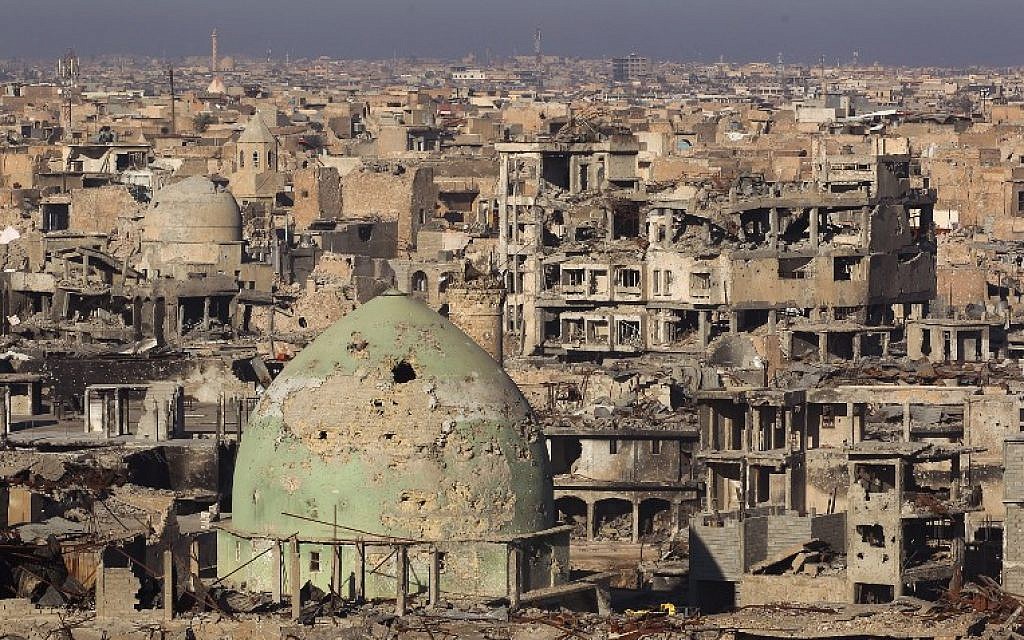Introduction to Mosul
Welcome to a city with a rich history and a resilient spirit – Mosul. Nestled along the banks of the Tigris River in northern Iraq, Mosul has been a melting pot of cultures, traditions, and stories for centuries. From its ancient roots to its present-day challenges and triumphs, there is much to discover about this enigmatic city. Join us as we delve into everything you need to know about Mosul – from its past glory to its current revival.
History of Mosul
Nestled along the banks of the Tigris River, Mosul boasts a rich history that dates back thousands of years. Once a thriving center of trade and culture, Mosul has been inhabited by various civilizations including Assyrians, Babylonians, Persians, Greeks, Romans, Arabs, and Ottomans.
The city flourished under Islamic rule during the Abbasid Caliphate in the 8th century and later became an important hub for scholars during the Islamic Golden Age. Its strategic location along ancient trade routes contributed to its prosperity as a melting pot of different cultures.
Mosul’s historical significance is evident in its architecture with landmarks like the Great Mosque of al-Nuri and Al-Hadba Minaret which stood tall for centuries before being destroyed during recent conflicts.
Despite facing challenges throughout its past, Mosul remains resilient. It continues to preserve its cultural heritage amidst ongoing efforts to rebuild and restore this storied city for future generations to appreciate.
The Current Situation in Mosul
The current situation in Mosul is a blend of resilience and rebuilding. After years of conflict and devastation, the city is slowly but steadily recovering. Efforts to restore infrastructure, homes, and communities are ongoing.
Though scars from the past remain visible, there is a sense of hope in the air. Locals are coming together to revive their beloved city, one step at a time. Businesses are reopening, schools are welcoming students again, and life is gradually returning to normalcy.
International support has played a crucial role in aiding Mosul’s reconstruction journey. NGOs and governmental organizations continue to provide assistance in various forms – from healthcare services to educational programs.
As Mosul continues its path towards recovery, it stands as a symbol of strength and resilience amidst adversity. The road ahead may be challenging, but with determination and unity, brighter days lie on the horizon for this historic city in Iraq.
Cultural and Tourist Attractions in Mosul
Mosul is a city rich in cultural and historical landmarks that offer visitors a glimpse into its vibrant past. One of the main attractions is the Mosul Museum, which houses an extensive collection of artifacts dating back to ancient Mesopotamia. Visitors can marvel at intricate pottery, sculptures, and manuscripts that showcase the region’s diverse heritage.
For those interested in architecture, the Great Mosque of al-Nuri is a must-visit site. Its iconic leaning minaret was tragically destroyed during the conflict but efforts are underway to restore this symbol of Mosul’s skyline. The mosque itself dates back to the 12th century and features stunning Islamic geometric patterns and calligraphy.
Additionally, exploring the bustling markets in Mosul allows visitors to immerse themselves in local culture. From colorful spices to handmade textiles, these souks offer a sensory experience like no other. Taking a stroll along the Tigris River provides a tranquil escape from the city buzz, with picturesque views of historic bridges connecting east and west Mosul.
Cultural experiences await around every corner in Mosul for those willing to explore its hidden gems!
Life in Mosul for Locals and Visitors
Life in Mosul is a vibrant blend of tradition and modernity, where locals and visitors alike can immerse themselves in the rich cultural tapestry of the city. From bustling markets filled with colorful spices and textiles to serene mosques echoing with the call to prayer, every corner of Mosul tells a story.
For locals, daily life revolves around family gatherings, delicious cuisine like kebabs and baklava, and lively social events celebrating weddings or religious holidays. Visitors have the opportunity to explore ancient archaeological sites such as Nineveh’s ruins or stroll along the Tigris River enjoying panoramic views of the cityscape.
The warmth and hospitality of Mosul’s residents make it easy for visitors to feel at home while experiencing all that this historical city has to offer. Whether sipping tea in a local cafe or bargaining for souvenirs in the market, every moment in Mosul is an opportunity to create lasting memories amidst centuries-old traditions.
Rebuilding Efforts in Mosul
In the aftermath of conflict, Mosul is undergoing significant rebuilding efforts to restore its infrastructure and revitalize its communities. Organizations and volunteers are coming together to reconstruct homes, schools, hospitals, and businesses that were impact by years of turmoil.
Local residents are actively participating in the reconstruction process, demonstrating resilience and determination to rebuild their city. The restoration of historical sites and cultural landmarks is also a priority for preserving Mosul’s rich heritage.
Efforts are being made to create sustainable development projects that will not only repair physical damage but also promote economic growth and social stability. By investing in education, job opportunities, and public services, Mosul is striving towards a brighter future for its inhabitants.
The international community has shown support through funding initiatives and technical assistance to aid in the reconstruction efforts. With continued collaboration and dedication, Mosul is on the path towards recovery and renewal.
Conclusion
Mosul is a city with a rich history, vibrant culture, and resilient people. Despite facing challenges in recent years, the city is on a path to rebuilding and revitalization. From its ancient sites to bustling markets, Mosul offers a unique blend of past and present for locals and visitors alike to explore.
As efforts continue to restore infrastructure and promote tourism in the region, there is hope for a brighter future for Mosul. By supporting these rebuilding initiatives and showcasing the beauty of this historic city, we can all play a part in preserving its heritage for generations to come. So next time you think about traveling or learning about historical cities, consider adding Mosul to your list – it’s truly a hidden gem waiting to be rediscovered.







